Yoshida Hamono
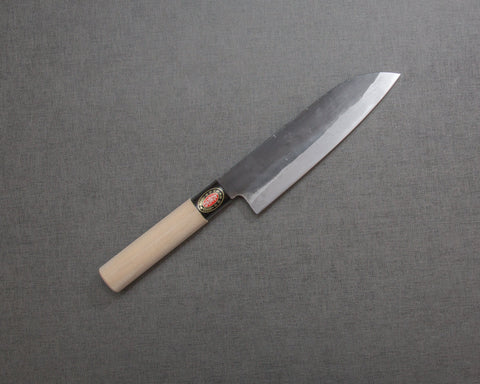
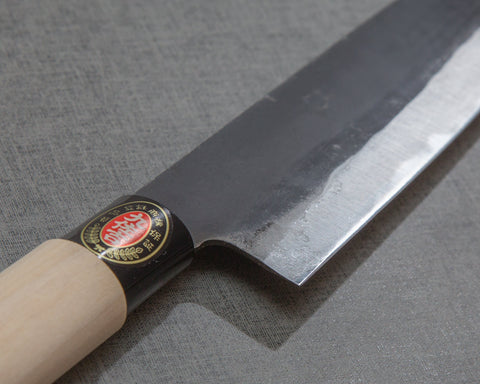
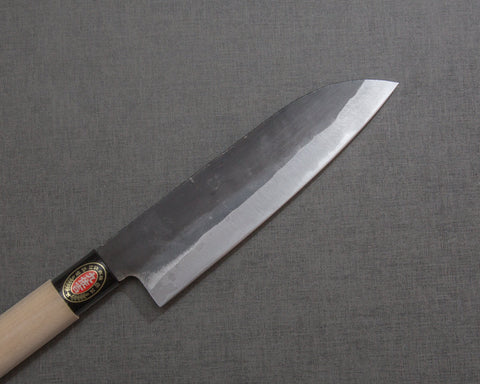
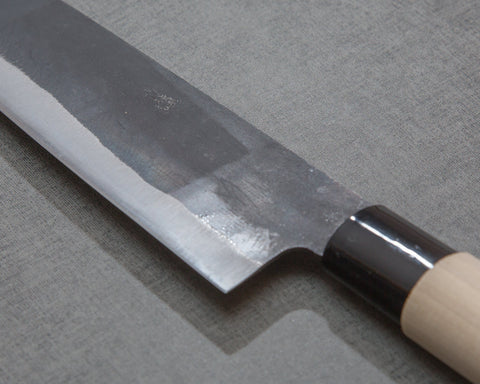
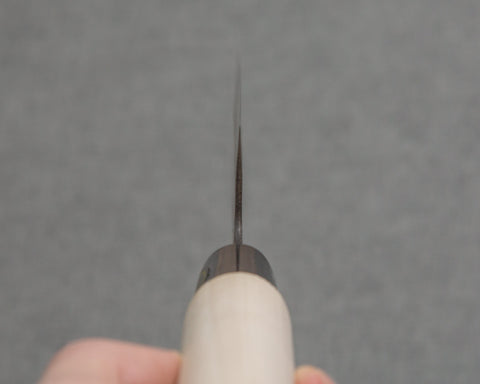
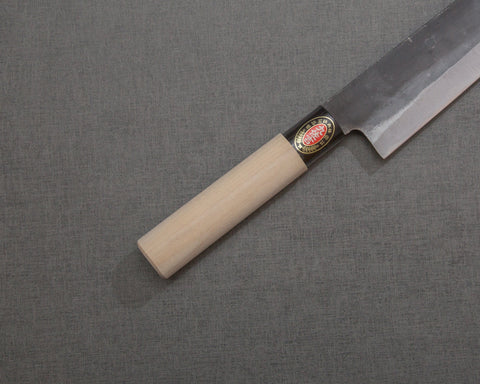
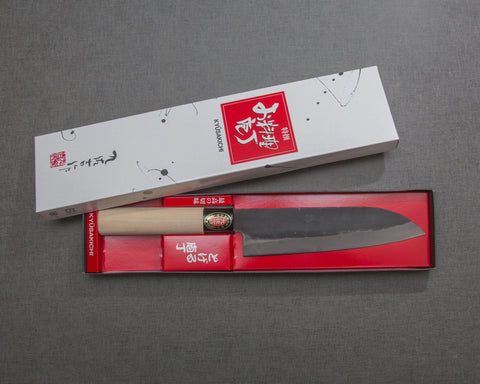
Kyusakichi / Yoshida Hamono Aogami #2 Kurouchi 180mm Santoku
Pickup currently unavailable
This Aogami #2 santoku knife is for those who are on a budget but want to try a handcrafted carbon steel knife. This knife offers some rudimentary level of grinding / tapering. While you cannot expect the forging, grinding, fit and finish to match a mid range/high end Japanese knife, this santoku is nevertheless an entry into the world of Japanese carbon steel knives. It can also be used as a carbon knife to practice knife sharpening.
Spec:
- Origin (Made in): Taku, Saga Prefecture, Japan
- Brand: Kyusakichi
- Workshop: Yoshida Hamono
- Knife Type: Santoku
- Blade
- Construction: San Mai
- Grind: Double-edged Blade (50/50 Grind)
- Hagane (Core Steel): Aogami #2 (Blue #2)
- Jigane (Cladding): Soft Iron
- Hardness: 61-63 HRC
- Hand-forged, hand-ground, hand-sharpened
- Blade Finishes:
- Kurouchi
- Kasumi Polish
- Blade Length: 180mm (7.1")
- Blade Height (at heel): 47mm
- Spine Thickness
- Above heel: 2.7mm
- Middle: 2.1mm
- Handle
- Shape: Marugata (Oval-shaped)
- Material: Japanese Magnolia (Ho Wood)
- Kuchiwa: Resin
- Length: 132mm
- Overall Length: 322mm
- Weight: 142g (5.01oz)
- Engraved Mark: In Japanese Kanji "Blue Steel" (青紙)
About Yoshida Hamono 吉田刃物
Yoshida Hamono is a family-run knife-making workshop founded by Seiji Yoshida (吉田清司) in 1946 in Saga Prefecture of Japan. Despite not being located in traditional Japanese knife-making cities like Sakai and Echizen, Yoshida have always been willing to catch up with the latest technology. In early 1970s they expanded to a large scale production and invested in modern machinery to meet a growing demand from all over Japan. This investment has also allowed them to clad their own steel rather than ordering it pre-laminated, so they are able to make their own knives from start to finish, with a consistent quality assurance.
Care:
Aogami #2 (Blue #2) steel is a premium Japanese high carbon steel for knife making. Despite some corrosion resistant quality (for a carbon steel), it is not stainless, therefore you should wipe your knife dry after each use. Patina will develop over time. Rust may develop if left in prolonged contact with water or acidic food. Use a rust eraser to clean if rusts develop. Avoid cutting into bones, frozen foods, hard fruit pits.
Cutting Surface:
Recommended cutting surface: wood, rubberized boards and high-end composites, and quality plastics such as polyethene make acceptable cutting surfaces, and will help protect and prolong knife’s edge. AVOID glass, metal, countertops, and other rigid, non-forgiving surfaces.
Sharpening:
We recommend sharpening all quality Japanese knives on whetstones, as we believe they yield the best results for your knives.
Free Shipping
Free Shipping on most orders.
30 Days Return
Return unused within 30 days for a full refund, no questions asked (terms apply).
Top Japanese Makers
All knives made in Japan by top Japanese knife makers.
About
Burrfection Store sources professionally designed sharpening products, and knives from top Japanese craftsmen.
